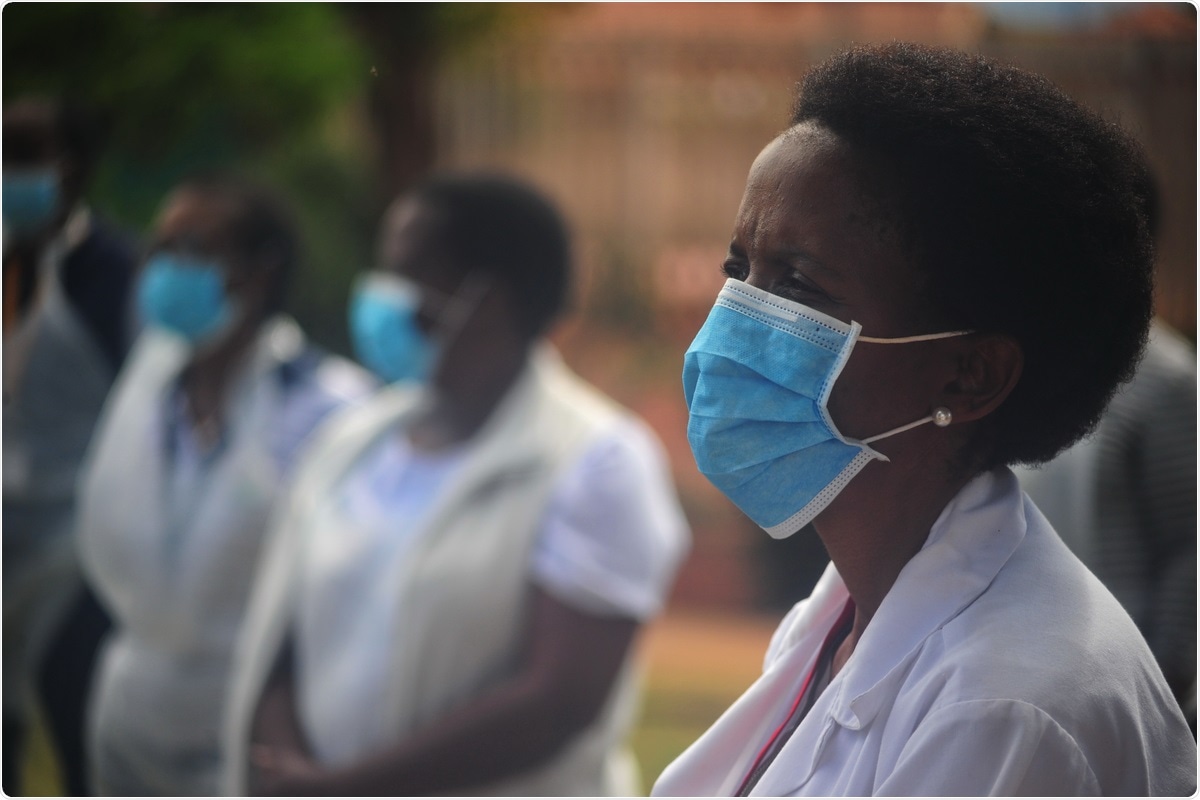The severe acute respiratory syndrome coronavirus 2 (SARS-CoV-2), which is the virus responsible for the coronavirus disease of 2019 (COVID-19), continues to spread across Africa, thus impacting mortality and morbidity rates on this continent. In fact, all 55 African Union (AU) Member States (MS) have reported COVID-19 cases, along with cases due to new SARS-CoV-2 variants, which have limited the efficacy of efforts to contain the pandemic.
However, since the majority of SARS-CoV-2 infections are either asymptomatic or mild, the true number of infections, along with age and sex distribution of infections, have not been fully determined yet in the context of Africa.

Study: Population-Based Serosurveys for SARS-CoV-2: Key Findings From Five African Countries: November 2020 to June 2021. Image Credit: Mukurukuru Media / Shutterstock.com

 *Important notice: Preprints with The Lancet / SSRN publishes preliminary scientific reports that are not peer-reviewed and, therefore, should not be regarded as conclusive, guide clinical practice/health-related behavior, or treated as established information.
*Important notice: Preprints with The Lancet / SSRN publishes preliminary scientific reports that are not peer-reviewed and, therefore, should not be regarded as conclusive, guide clinical practice/health-related behavior, or treated as established information.
Background
The number of confirmed COVID-19 cases that were detected and reported in each AU MS have been influenced by several factors such as the capacity for COVID-19 testing, case definition, access to and utilization of healthcare services, the manifestation of symptomatic illness among infected individuals, and community health-seeking behaviors.
National estimates of seroprevalence are considered to be important in understanding current or prior exposure to SARS-CoV-2 across populations, as well as to provide country-specific information for the development of guidelines for current and future control of epidemics. These estimates also help elucidate the true extent of the pandemic and provide insight into the factors that might have influenced transmission. Although previous seroprevalence studies have been carried out in Africa, they mostly focused on high-risk groups.
A new Preprints with The Lancet / SSRN First study Look* used the Africa Centres for Disease Control and Prevention (Africa CDC) generic protocol for obtaining COVID-19 seroprevalence data from Ethiopia, Uganda, Togo, Sierra Leone, and Zimbabwe to understand the spread and epidemiology of SARS-CoV-2 to help in response activities and guiding policies.
About the study
The current study recruited participants who filled out a questionnaire on pre-existing conditions, COVID-19 symptomology, basic demographics, pregnancy status, household information, hospitalization information, missed work or school, vaccination status, and treatments received. The survey varied in different countries and was conducted for varying durations from two weeks to two months between November 2020 and June 2021.
Blood samples were collected from the recruited participants and assessed for the presence of both immunoglobulin M (IgM) and IgG SARS-CoV-2 specific antibodies. Participants who showed the presence of either IgM, IgG, or both IgM and IgG were considered to be seropositive.
Study findings
Out of the 31,707 individuals surveyed across the five AU MSs, the majority were female. The participants from Sierra Leone, Togo, and Uganda were five years and older, whereas the cohort in Zimbabwe consisted of participants who were one year and older, and in Ethiopia, study participants were ten years and older. The majority of participants were reported to be between 20 to 39 years old.
Most participants in Ethiopia and Sierra Leone lived in large households, while in Uganda and Zimbabwe the majority of participants lived in smaller households. Taken together, most of the participants resided in rural areas.
The highest overall weighted seroprevalence of SARS-CoV-2 antibodies was observed in Uganda, followed by Togo, while the lowest was observed in Sierra Leone. The risk of seropositivity also appeared to increase with age.
Seroprevalence was also found to be affected by several factors such as sex, occupation, and demographics, while symptoms, pre-existing medical conditions, and household size were not found to influence seroprevalence.
The current study determined that seroprevalence studies were important in providing public health leaders with important information for action against SARS-CoV-2. Variations in results from these five AU MSs suggest the need to regularly conduct serosurveys for better monitoring of the pandemic.
Limitations
Some of the limitations of the current study included issues regarding inconsistent response options, missing data, and different sampling designs. Furthermore, the results were limited to the comparable variables, rather than the entire population. The observed levels of infection were also affected, as each MS implemented its survey according to local logistic factors.

 *Important notice: Preprints with The Lancet / SSRN publishes preliminary scientific reports that are not peer-reviewed and, therefore, should not be regarded as conclusive, guide clinical practice/health-related behavior, or treated as established information.
*Important notice: Preprints with The Lancet / SSRN publishes preliminary scientific reports that are not peer-reviewed and, therefore, should not be regarded as conclusive, guide clinical practice/health-related behavior, or treated as established information.